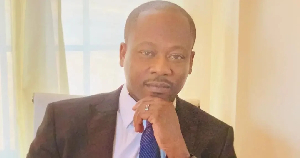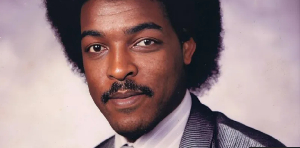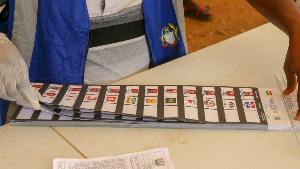The Centre for Public Opinion and Awareness (CenPoA), a neutral and independent civil society organisation, advocates for enhanced civic involvement and governance transparency through regular forensic audits of the voter register.
CenPOA believes that the forensic audit should be a regular feature of the register, rather than only being conducted a few months prior to an election.
According to Dr. Kamal Alhassan, Research Fellow at CenPOA and a PhD candidate at Virginia Commonwealth University’s Douglas L. Wilder School, the audit scope must extend to post-election activities.
In an interview on Frontline on Rainbow Radio 87.5FM, he contended that regular forensic audits of the register would foster transparency and accountability, thereby resolving discrepancies.
The cybersecurity expert asserted that a forensic audit must also be comprehensive to cover electoral processes, information system technology, and the EC’s operational methodology, among others.
Kamal Alhassan was responding to a question on whether the call for a forensic audit of the voter register was feasible now considering we are barely two months into the general elections.
The situation at hand, he argued, reveals a fundamental leadership flaw: our leaders’ tendency to react to issues rather than anticipate them.
"This shouldn’t be the case. We have to be proactive and reactive to challenges confronting us. The call for a forensic audit should have been a process which the EC should have laid out rules and processes for dealing with the challenge and avoiding the current situation we are confronted with.
"The EC claims to have addressed all the concerns raised regarding the register. But the EC cannot police itself. That is why we have internal auditors and external auditors. The external auditors come in and are able to detect what their internal auditors might have missed.’’
He said the call or a forensic audit requires a lot of resources; hence, it should be a regular activity conducted to correct all errors or discrepancies in the voter register.
Kamal Alhassan said, "We don’t have to wait until there is an election before we call for a forensic audit.” It must be a regular feature of the voters’ register’’.
He advocated for consensus-driven approaches to electoral issues, free from partisan influences.
He criticized the tendency of incumbent parties to disregard institutional accountability for self-interest, only to prioritize it while in opposition. He urged the EC to explore external expertise, such as independent system audits.
”A forensic audit entails a lot. It involves the entire process of the electoral activities, from the IT systems to their personnel and their facilities. So this will require an external entity to come in and audit all their processes, all their frameworks, standard operating systems, technological systems, how they outsource their contracts, the hiring processes, and how they are protecting the data.
"The mechanism is in place to protect the data in transit or transmit the data from one system to the other. At the end of the day, when it comes to technology, three things are determined: do you have the necessary controls to ensure the integrity of your data? The confidentiality and availability of your data. These are all very important, and any breach would compromise the entire electoral process.
"At this point, what we can do is call for an independent oversight committee that consists of CSOs, election observers, and international bodies to go in and ensure that everything is in order and that all the issues raised have been taken care of. If the EC claims to have conducted any form of audit, it should just provide the report while assuring Ghanaians that the systems are secured and subject it to an audit. It should, however, be an external audit because it cannot be coming from them,’’ he added.
Politics of Tuesday, 1 October 2024
Source: rainbowradioonline.com
Forensic audits should become a regular feature of voters’ register – CenPOA
Entertainment
















